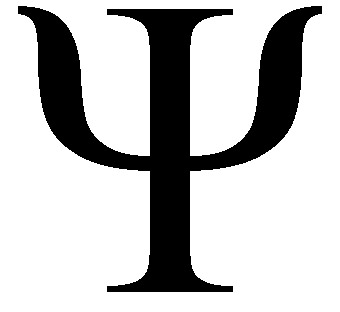Seeing Red? How Room Colors Influence Emotions
My teen son decided he wanted to paint his room black.
“Black?” I asked, while secretly trying to buy time as to how I might convince him to go with a different hue. The emotional ramifications of staring at all black walls were running through my head.
‘How about a dark rich blue?” I offered in compromise.
How we respond to colors has long been a topic of interest in environmental psychology. Over the past century, researchers have examined both broad patterns of color–emotion correspondences and more specific effects of paint hues in enclosed spaces. What are the overall conclusions we’ve drawn from this vast research?
A large-scale systematic review of 132 empirical studies (1895–2022; n ≈ 42,000 participants across 64 countries) identified consistent associations between basic color categories and emotions (e.g., red with anger or excitement; blue/green with calm or sadness; pink with love) (Palmer, Schloss, & Sammartino, 2024). Red tended to evoke both high-arousal positive (e.g., love, excitement) and negative (e.g., anger, hostility) emotions, while blue-green hues were consistently tied to low-arousal positivity and relaxation (Palmer et al., 2024).
Warm colors like red, orange, and yellow have been shown to produce physiological arousal and heightened emotional activation (Kurt & Osueke, 2014). For instance, studies have documented increased heart rate and metabolic activity in participants exposed to red environments, while cool hues—particularly blue and green—have a calming effect and may reduce stress (Kurt & Osueke, 2014).
Ecological valence theory (EVT) posits that color preferences reflect affective associations with objects commonly tied to those hues (Palmer & Schloss, 2010). For example, people tend to favor blue because it is associated with pleasant items such as clean water and clear sky; conversely, brown may be disliked due to associations with decay or waste (Palmer & Schloss, 2010). EVT has successfully accounted for approximately 80 % of the variance in color preferences among U.S. adults (Palmer & Schloss, 2010). Subsequent research showed that this explained variance can vary by gender and culture (e.g., ~74 % in males, ~45 % in females) (Schloss & Palmer, 2011), and tends to decline sharply in non‑Western samples (e.g., 37 % in Saudi Arabia; ~23 % in Namibia’s Himba people) (Al‑Rasheed, Franklin, & Maule, 2022; Taylor et al., 2013). Moreover, experimental priming studies demonstrated that affective experiences with red or green objects could temporarily alter preferences for those paint colors, though these effects often diminished within 24 hours (Strauss, Schloss, & Palmer, 2013; also see Kurt & Osueke, 2014). These findings suggest that color preferences are dynamic and shaped by associative learning.
Practical design recommendations can be derived from these findings:
• Use cool hues (blue/green) with moderate saturation and warm white lighting in bedrooms or relaxation areas to foster calm and reduce stress.
• Incorporate warm or bright colors (red/orange/yellow) in active zones like kitchens or exercise rooms—but keep saturation moderate to avoid overstimulation.
• Consider light, pastel tones and softer contrasts for positive mood enhancement.
• Be mindful of cultural norms, individual preferences, and intended room use: responses to the same color can differ across individuals and contexts.
Despite robust patterns, caution is warranted. Many studies rely on short‑term exposure, small samples, or abstract color patches rather than fully furnished rooms. Longer-term or more immersive exposure could yield different effects. And, as always, individual preferences and unique responses are always a factor.
So, what about a room with black walls? (As it is quite evident at this point my son has decided that black is his wall color of choice.) A black-painted room can be dramatic, elegant, and emotionally rich, but it requires thoughtful design. Empirical research suggests that black is generally associated with low-arousal negative emotions, such as sadness, fear, or introspection (Palmer, Schloss, & Sammartino, 2024). These associations are not universally negative, however; in design contexts, black is also linked with sophistication, depth, and power (Palmer & Schloss, 2010). According to ecological valence theory, people's color preferences reflect their cumulative affective experiences with color-associated objects—so if someone associates black with elegance or control, they may experience positive emotions in a black room (Palmer & Schloss, 2010). Nonetheless, excessive use of black can dampen mood and energy, especially in poorly lit or confined spaces (Kurt & Osueke, 2014). Thoughtful application—such as pairing black with contrasting materials, layered lighting, and intentional design elements—can mitigate its drawbacks and promote a sense of coziness, introspection, or modern luxury (Schloss & Palmer, 2011). Ultimately, the psychological impact of black depends heavily on context, lighting, personal associations, and cultural norms.
We painted the walls Tricorn Black by Sherwin Williams and balanced the paint with crisp white trim and layered lighting. And it worked for us.
References (APA-style)
Al‑Rasheed, S., Franklin, A., & Maule, J. (2022). A test of the ecological valence theory of color preference: The case of Arabic. COGSCI, n/a. [Summarized literature]
Genschow, O., Noll, T., Wänke, M., & Gersbach, R. (2015). Does Baker–Miller pink reduce aggression in prison detention cells? A critical empirical examination. Psychology, Crime & Law.
Kurt, S., & Osueke, K. K. (2014). The effects of color on the moods of college students. SAGE Open, n/a.
Palmer, S. E., & Schloss, K. B. (2010). An ecological valence theory of human color preference. Proceedings of the National Academy of Sciences, 107(19), 8877–8882.
Palmer, S. E., Schloss, K. B., & Sammartino, J. (2024). Do we feel colours? A systematic review of 128 years of psychological research linking colours and emotions. Psychonomic Bulletin & Review.
Pellegrini, R. J., Schauss, A. G., & Miller, M. E. (1981). Room color and aggression in a criminal detention holding cell: A test of the “tranquilizing pink” hypothesis. Journal of Orthomolecular Psychiatry.
Schloss, K. B., & Palmer, S. E. (2011). Effects of university affiliation and “school spirit” on color preferences: Berkeley versus Stanford. Psychonomic Bulletin & Review.
Strauss, E., Schloss, K. B., & Palmer, S. E. (2013). Color preferences change after experience with liked/disliked colored objects. (follow‑up EVT priming study).
Taylor, C., Schloss, K. B., Palmer, S. E., & Franklin, A. (2013). (Himba color preference study; referenced in frontiers, 2022)
Yokosawa, K. et al. (2016). Ecological effects in cross‑cultural differences between U.S. and Japanese color preferences. Cognitive Science.



